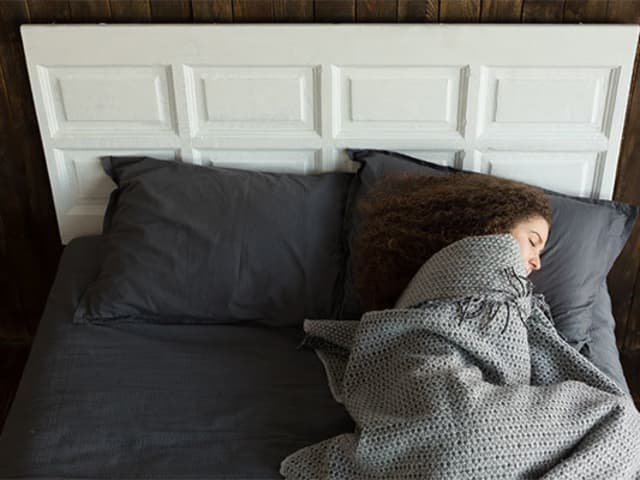Want to improve memory? Sleep and sound waves may help.
According to a study published in Physiological Reviews, scientists now realize memories are made stronger during sleep because sleep helps consolidate memories.
Think of it like this: When awake we encode memories. When asleep we strengthen them. It's like buying some clothes and putting them away – sleep is when we store what we “bought."
Experts used to believe sleep had a passive role, protecting memories from new stimulus – making sure new experiences didn't prevent older ones from being memorized. “Current theories highlight an active role for sleep in which memories undergo a process of system consolidation during sleep," the study says, counter to those previous assumptions.
So, Why Do We Become Forgetful as We Get Older?
Scientists believe it's because we are losing our deep sleep – which decreases in middle age due to gray-matter atrophy (loss of gray matter brain tissue), according to a study published in Frontiers in Human Neuroscience. This study shows improved deep sleep in older adults can improve memory.
“As the population of adults over the age of 65 continues to increase, it is critical to further elucidate the relationships between sleep and cognitive function," the study says, noting research has not focused enough on memory consolidation. “Although age is a significant risk factor for memory loss and dementia, there may be modifiable factors that also contribute to memory decline, such as sleep."
The small study engaged 13 cognitively healthy adults ages 60-84 years old in one night of acoustic gentle sound stimulation and one night of sham stimulation (a placebo), in random order. After both nights the participants took a memory test involving word pairs, at night and again the next morning.
The acoustic stimulation involved synchronizing gentle sounds, such as the rush of a waterfall, to the rhythm of the sleepers' brain waves. The experiment found the sound waves significantly enhanced deep sleep in older adults, resulting in a 26 percent improved ability to recall words following the sound stimulation.
"This is an innovative, simple and safe non-medication approach that may help improve brain health," says senior author Dr. Phyllis Zee, a sleep specialist and professor of neurology at Northwestern University Feinberg School of Medicine. "This is a potential tool for enhancing memory in older populations and [diminishing] normal age-related memory decline."
What Does This Mean for the Future of Your Sleep?
Larger studies are needed, of course. “The idea is to be able to offer this for people to use at home," says author Nelly Papalambros, a Ph.D. student in neuroscience.
Until a special device is invented to link sound to your brain waves, try a simple sound machine. Fixing sleep hygiene, and the use of a sound machine, can help all ages from retirees to college students and even toddlers, as the Journal of American College Health notes.
Want even better sleep? Sleepers who routinely use their Sleep Number 360® smart bed features and SleepIQ® technology get almost 100 hours more proven quality sleep per year.*
Like diet and exercise, quality sleep has a profound impact on our physical, emotional and mental wellbeing. Because no two people sleep the same, Sleep Number 360® smart beds, with SleepIQ® technology, sense your movements and automatically adjust firmness, comfort and support to keep you both sleeping comfortably and provide proven quality sleep. Find your Sleep Number® setting for your best possible night's sleep, and if you own a Sleep Number® bed, log in to your InnerCircle℠ Rewards account to see your exclusive offers, refer friends and more.
*Based on internal analysis of sleep sessions assessing sleepers who use multiple features of Sleep Number® products. Claim based on sleepers achieving over 15 more minutes of restful sleep per sleep sessions.
